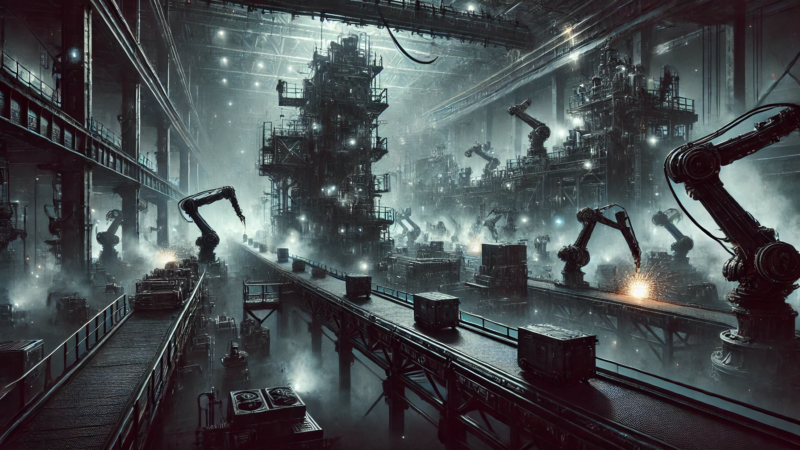Artists in the entertainment industry are some of the most glamourous people we have in the world. Besides the fame and wealth that the industry showers on them, the love of the masses simply sweeps them off their feet for years together. Since acting is a skill that does not come easy to most people, entertainment industry has become a stronghold of prolific actors who have niche skills in dramatics. No wonder, owing to the niche and competitive space, entertainment industry does promise huge dividends if someone is able to perform well enough to appeal to the sensory pleasures of the masses.
However, the dark clouds of disruption seem to be accelerating towards the entertainment sector, as generative AI is making its mark felt in almost all sectors of economy. If one has paid attention to the generative AI developments so far, one would have witnessed the emergence of platforms that can crate realistic short videos that are difficult to distinguish from genuine real-world video clips. Will this eventually lead movie producers to ditch human artists in favour of computer-generated artists having their own identity, voice and demeanour? Will generative AI sound the death knell for the need of human actors in the print and online entertainment sector?
Production using prompts, not people
The gradual democratization of generative AI tools and the increasing availability of cost-effective platforms for video generation is tickling the imagination of people globally. Platforms such as Sora, Kling AI, Luma Dream Machine, etc. are nailing the job of generating animations that look indistinctly similar to real-world videos. All that a person needs to do is to type in a prompt and generate a video with a click of a button. Does it not sound too easy for a director or a producer to crate movies just by typing in the requirements?
Will there be a day when producers or directors will simply produce entire movies sitting in their small office space at home?
That day may be quite far, but certainly a possibility. Since generative AI learns from historical data, it may soon be possible to train AI models on volumes of data from past movies, to eventually generate documentaries and movies of one’s liking without spending on expensive movie sets, VFX, animations, costumes and above all… actors. When humans can be simulated and can be made to have features that make them appear in any complexion, size, physique and ethnicity, the cost of hiring actors will diminish significantly. Imagine an entire industry of animators, VFX artists, actors, cameramen, costume designers, make-up artists, and others plunging into obsolescence. How scary does that future look like to you?
Power in hands of everyone
If such AI tools become ubiquitous, then the day won’t be far when any individual regardless of budget or background in movie production will be able to crate movies from bedroom. Creation of movies, documentaries, short videos, web-series, etc. will be a child’s play and AI will take care of everything. From music generation to voice creation, generative AI can get everything done for you, including creating new environments to put the movie characters in. Generative AI can streamline scriptwriting by analyzing existing scripts to figure out successful plots, character arcs, storylines, language structures and dialogue patterns. Even today, generative AI can develop preliminary storyboards to save time of the pre-production teams. High quality visual effects and new backgrounds can be easily created by AI, in addition to the animation sequences and fantastic objects in the scenes, resulting in faster production cycles.
Think of teasers and trailers, even those can be personalized for each type of viewer so that the teasers resonate with the interests of each individual in the target audience.

What about permissions?
Before we get into the permissions-side of the world, let us acknowledge that several firms have begun experimenting with generative AI. Lucasfilm has used generative AI to simulate realistic crowds and backgrounds. Jukebox by OpenAI has developed AI tools to compose original music in several styles. A movie “Everything Everywhere All at Once” released in 2022 was created using generative AI. And several more companies are experimenting with the technology for production of entertainment content. However, there is a caveat.
Do we need to seek permissions from artists on whose voice, acting style and body movements the new simulated characters will be created?
Yes. Yes! Yes!! We definitely need to seek consent because a production firm cannot and should not create content of any type unless the artists who have been used to train the data have not agreed to let their attributes be used. However, debates will persist around who owns the simulated characters? Suppose a production firm creates a simulated character based on the voice or body language of Tom Cruise or Jennifer Aniston, will Tom or Jennifer own them, or the production firm? That debate is yet to be settled.
Disclosure and strikes
It is evident that artists will join a movement soon to protest against the unethical and unjustified use of generative AI in performing arts. In May 2023, the Writers Guild of America (WGA) went on strike for several reasons, including the need to regulate the use of material produced using AI. And more such movements may follow suit. Moreover, entertainment production companies are being encouraged to disclose any use of generative AI in their content, so that viewers do not associate particular comments or actions to a specific actor or location. It won’t be long before performing artists and their allied service providers start protesting against the unjust use of generative AI that reduces cost of production at the expense of artists’ livelihoods.
A day may soon emerge when employability in the entertainment sector may fall below abysmal levels, making the sector highly profitable but less human.
What to anticipate Tomorrow?
Generative AI is not yet so smart enough to replace real musicians, actors, producers, singers, and others in the entertainment industry. However, the pace at which the technology is evolving does produce minor shockwaves for the industry stakeholders to take notice of. Generative AI can potentially shift the fame, wealth and glamour of the world to unreal characters, while real humans feel ousted from the industry that was entirely dependent on them.










